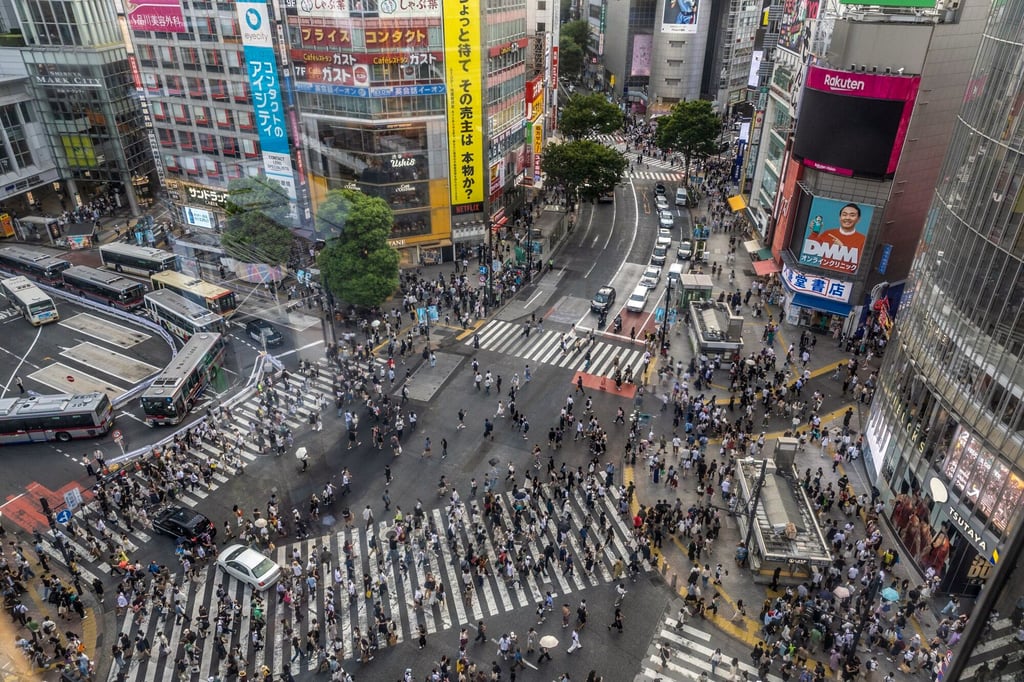As Japan puts out 'megaquake' alert, how should Hong Kong ...
Explainer | As Japan puts out ‘megaquake’ alert, how should Hong Kong holidaymakers tackle a crisis?

A string of earthquakes hit Japan, a magnet for Hong Kong tourists, last week and authorities in the country have warned of the risk of a “megaquake”.
The country’s meteorological agency issued its first “megaquake advisory” just hours after a 7.1-magnitude earthquake hit southern Japan on Thursday.
This warning means an increased likelihood of a magnitude 8 or 9 earthquake and major tsunamis along the Nankai Trough, an unstable area on Japan’s southwest Pacific coast.
Japan remained a top destination for Hong Kong tourists and attracted 1.28 million visitors from the city in the first six months of the year, a 16 per cent increase on the same period in 2019.
Here the Post looks at ways to check whether earthquakes in Japan are likely and how to cope if the worst happens.
1. How do visitors to Japan get information or warnings?Hong Kong travellers in Japan can obtain earthquake information and warnings from a variety of sources.
The Japan Meteorological Agency (JMA) gives regular updates on seismic activity on its website in English and Chinese, as well as other languages.
Travellers can download apps like “Safety Tips” from the Japan Tourism Agency and the privately run “Yurekuru Call,” which sends alerts about impending earthquakes, with several languages available.
Many hotels, tourist information centres, and public places in Japan have earthquake early warning systems that provide alerts through loudspeakers and mobile phone notifications, also in a variety of languages.
Japanese television and radio stations also broadcast emergency information and updates during periods of high seismic activity and natural disasters, with television company NHK providing broadcasts in English.
The disaster preparedness manual from the Tokyo metropolitan government advises people who are indoors to shelter under a sturdy table or desk.
If no table is available, they should crouch down, cover their head and neck with their hands and take cover against an interior wall, away from windows or shelves that could fall.
If caught outside, the manual said people should move away from buildings, streetlights and electricity lines, all of which could collapse, and take cover in open areas.
Steven Huen Kwok-chuen, the executive director travel agency EGL, who worked in Japan for about 10 years, said buildings constructed in the country after the 1980s were generally designed to cope with a magnitude seven earthquake, which made them relatively safe.
“What we should be concerned about are items like hanging lamps and cabinets that could fall,” he added.
Tsunamis, he said, usually posed a greater danger than tremors, and advised visitors near coastal regions to follow the evacuation routes used by residents as tourists might be unaware of safer elevated areas nearby.
3. What help is available in Japan?Hong Kong travellers can seek help from a variety of resources.
The first point of contact should be emergency services, contacted on 119 for fire and ambulance services and 110 for police.
Hongkongers can also use the 24-hour city Immigration Department hotline on +852 1868, or the 1868 WhatsApp service.
The Chinese embassy in Tokyo can also offer help and information.
The number is +81-3-3403-3388 and the address is 3-4-33 Moto-Azabu Minato-Ku Tokyo.
4. Is a Japanese-style emergency kit needed?Japanese families have a tradition of maintaining an emergency kit at home, which will include essential items such as bottled water, non-perishable food and a flashlight with spare batteries.
But Huen said it would be impractical to advise travellers to carry a lot of items with them.
He recommended that people should ensure they have extra water and power banks to charge mobile devices.
“The most crucial items are water, which should be sufficient to last for the so-called 72-hour golden window, along with a phone and chargers,” Huen said.









































